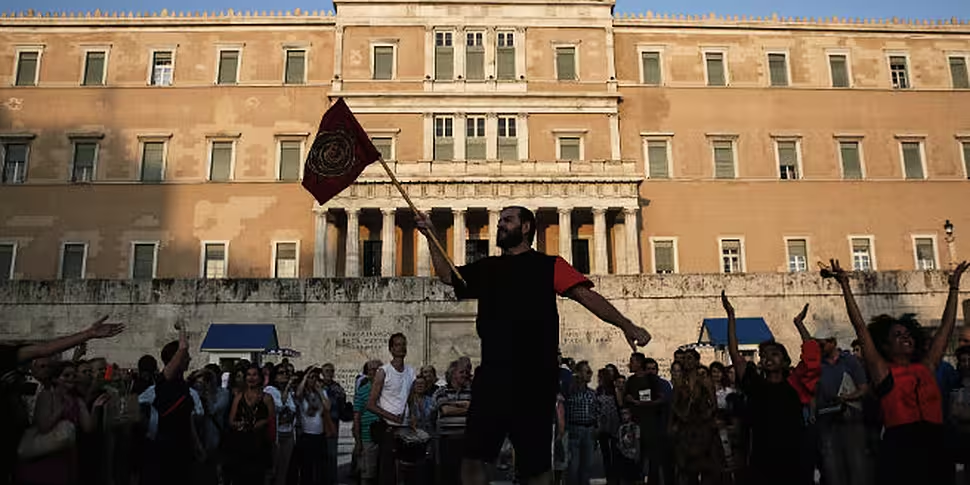Hopes for a solution to the 'Greek problem' are dwindling, after the latest failed effort to reach a deal on the country's debts.
Ministers met in Luxembourg yesterday in the hopes of hammering out an agreement, however they ended without success.
The EU has now called a Eurozone meeting for Monday.
The eurozone's top official, Jeroen Dijsselbloem, said no progress was made in discussions held on Thursday. He warned that time was running out and said the "ball is clearly in the Greek court".
He said Greece proposed too few measures that are credible and serious and that the talks over the past few weeks "have not progressed."
But Greek Finance Minister Yanis Varoufakis slammed EU ministers, saying the eurozone was "dangerously close" to a state of mind "that accepts an accident."
He said Mr Dijsselbloem was focusing "unfortunately" only on Greece's responsibilities.
There is growing pressure on Greece to reach an agreement with its international creditors, amid warnings from the International Monetary Fund (IMF) there will be "no period of grace" in its debt repayment deadline.
The IMF chief Christine Lagarde says Greece will be in default if it does not make a key repayment by the end of this month.
"There will be no period of grace," Ms Lagarde told reporters in Luxembourg. "I have a term of June 30 - if it's not paid by July 1, it's not paid."
The country is due to pay the IMF €1.6bn by the end of June, but debt-stricken Greece says it cannot afford it.
International creditors are refusing to provide the next tranche of a bailout package, worth €7.2bn, until Greece agrees to make further economic reforms, such as making changes to pensions and VAT rates.
But the country's Prime Minister Alexis Tsipras, who was elected on an anti-austerity platform, is refusing to agree to the deal.
With his country locked in talks with creditors, the Greek Prime Minister has travelled toMoscow to meet Russian President Vladimir Putin raising speculation he could be seeking financial support.
If Greece defaults on its debts, the country's central bank has warned it could lead to a "painful" exit from the eurozone.
Speaking ahead of Thursday's talks, German Chancellor Angela Merkel said she remained hopeful that a 'cash-for-reforms' deal could still be reached.
"I am still convinced - where there's a will, there's a way. If the political leaders in Greece demonstrate this will, then a deal with the three institutions is still possible," she said.
But Eurogroup chief Jeroen Dijsselbloem arrived at Thursday's talks less optimistic, telling reporters: "I don't have a lot of hope."
Meanwhile Greece's prime minister is heading to Russia for talks with Vladimir Putin.
Alexis Tsipras is one of few western leaders at the three-day Saint Petersburg International Economic Forum.
Yesterday Finance Minister Michael Noonan said Ireland wouldn't be affected by a Greek default, or if the country is forced out of the EU.
But senior lecturer in Economics at University of Limerick Dr Stephen Kinsella says this simply isn't the case, as nobody knows what the affect will be:









